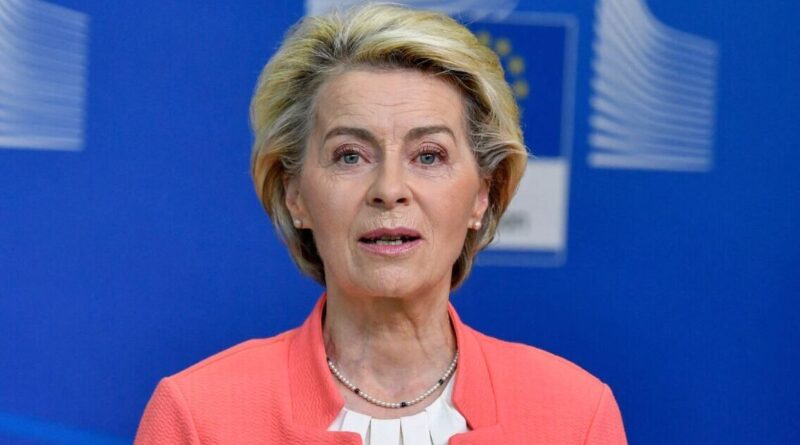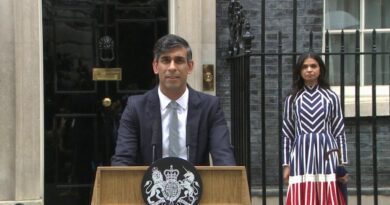Ursula von der Leyen’s election threat as German youngsters to vote | World | News
European Union citizens will cast their votes to elect representatives to the European Parliament this weekend, which could impact the future of the EU and Ursula von der Leyen‘s chances to be re-elected as EU Commission President.
Notably, for the first time, some EU member states, including Germany, have lowered the voting age to 16, potentially influencing voter turnout and election results.
Professor Florian Stoeckel from the University of Exeter highlighted the uncertainty surrounding the election outcome, particularly the performance and unity of far-right parties.
He told Express.co.uk: “Far-right parties are expected to win seats across the EU. The question is how strong these parties will be and to what extent they will work together after the election. In the past, they tended to be very divided, which limited their effectiveness in exerting pressure on the direction of policy.”
Despite the expected gains by far-right parties, Professor Stoeckel believes that “the right of centre and left of centre parties, together with liberals, will retain a majority of seats. These parties have worked together in the past to shape policy collectively, and this is likely to continue.”
This coalition will be crucial in determining the next European Commission president, casting doubt on Ursula von der Leyen’s chances of securing a second term.
Von der Leyen faces significant challenges in her re-election bid, with experts predicting a tough fight. Her political fate hinges on the results of the European Parliamentary elections, taking place from June 6-9. Analysts anticipate a larger number of elected officials opposed to von der Leyen, complicating her path to re-election.
An anonymous member of von der Leyen’s European People’s Party (EPP) group emphasised the effort required, telling Politico: “She needs to roll her sleeves up and call everyone. She needs to keep doing it until the campaign ends.”
The source highlighted the necessity of gaining support from key political groups, including Poland’s Civic Coalition and Spain’s Partido Popular, adding: “She needs to push hard to make Spain happen. She needs to push hard to make Poland happen. It takes planning.”
The EU Commission leader must overcome two major obstacles: securing the backing of a qualified majority of the 27 EU leaders at the European Council meeting in late June and winning a minimum of 361 votes from the 720 Members of European Parliament in a secret ballot.
While obtaining support from EU leaders might be more straightforward, potential opposition from French President Emmanuel Macron and German Chancellor Olaf Scholz could pose difficulties.
Gaining sufficient support from MEPs presents a significant challenge, with the EPP projected to secure around 170 seats. To achieve the necessary majority, von der Leyen must attract approximately 150 additional votes from across the political spectrum. However, many on both the left and right remain sceptical of a candidate representing the EU establishment.
Further complicating her campaign, the Socialists and Democrats (S&D), Renew, and the Greens have declared they will not support von der Leyen if she makes any concessions to Italian PM Giorgia Meloni’s right-wing Brothers of Italy party.
Given that von der Leyen secured her position by a narrow margin of nine votes in 2019, the upcoming contest is expected to be equally tight.
As 16-year-olds in Germany and other member states head to the polls, their influence on the election remains to be seen.
Professor Stoeckel added: “It will certainly be interesting to see how this affects turnout, and in which direction the youngest voters want to take the EU.”





